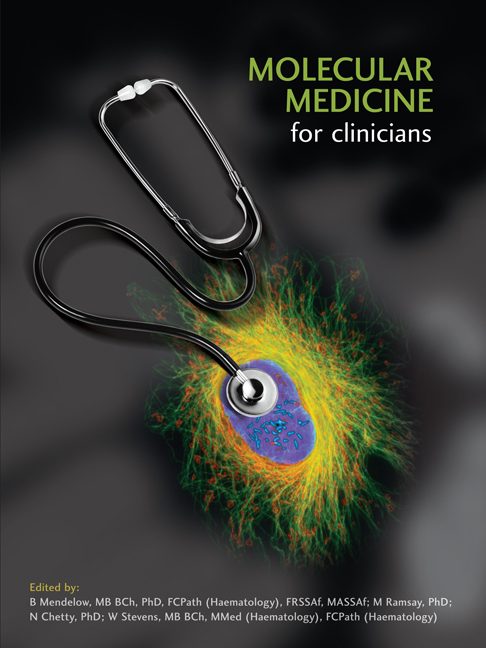Book contents
- Frontmatter
- Contents
- Foreword
- Acknowledgements
- Chapter 1 Introduction
- Keynote Essay 1: Defining Who We Are: DNA in Forensics, Genealogy and Human Origins
- Section 1 Principles Of Cellular And Molecular Biology
- SECTION 2 MOLECULAR PATHOLOGY
- SECTION 3 MOLECULAR THERAPEUTICS
- SECTION 4 RESEARCH AND THE CONTINUING EVOLUTION OF MOLECULAR MEDICINE
- Glossary
- Contributors’ Biographies
- Source Material And Recommended Reading
- Permissions And Credits
- Index
Chapter 1 - Introduction
Published online by Cambridge University Press: 04 June 2019
- Frontmatter
- Contents
- Foreword
- Acknowledgements
- Chapter 1 Introduction
- Keynote Essay 1: Defining Who We Are: DNA in Forensics, Genealogy and Human Origins
- Section 1 Principles Of Cellular And Molecular Biology
- SECTION 2 MOLECULAR PATHOLOGY
- SECTION 3 MOLECULAR THERAPEUTICS
- SECTION 4 RESEARCH AND THE CONTINUING EVOLUTION OF MOLECULAR MEDICINE
- Glossary
- Contributors’ Biographies
- Source Material And Recommended Reading
- Permissions And Credits
- Index
Summary
The explosion of public interest in the human genome, coupled with the revolution in information technology and widespread access to knowledge made possible by modern communication technologies, has created a public that is increasingly demanding that their medical professionals are experts in the diagnostic and therapeutic implications of applied molecular medicine. Moreover, the rampant march of HIV/AIDS, itself a quint essentially molecular disease that defies even rudimentary understanding without a firm foundation in the central paradigm of molecular biology, has reinforced the urgent need for reforms in medical student curricula. These changes are coming at a time when most medical schools in South Africa and abroad are adopting integrated problem-based learning for medical education. While such approaches are very effective in setting a relevant context for clinical medical education, there is the risk that basic sciences can be overlooked or under-emphasised. This introductory chapter reviews why it is necessary to devote special attention to the teaching and learning of molecular medicine in South African medical schools today.
The global explosion in molecular research
The history of scientific progress characteristically follows an uneven pathway, the pace and direction of which are very much dependent on the availability of technology appropriate to answer the questions of the time. Barriers to further progress are broken down by the development and deployment of new tools, which frequently do more than solve hitherto insoluble problems – they also tend to determine the character of the next generation of questions. An example of this principle in the history of biomedical science is the invention and deployment of the compound microscope in the seventeenth century. The revelation of tissues and cells that this tool enabled paved the way for a new pathology, spawning centuries of scientific endeavour characterised by an understanding of the cellular basis of disease and the whole science of microbiology. This new state of the art itself came to encounter impenetrable barriers to further progress towards the end of the twentieth century. Characteristically, further progress had to await widespread deployment of a new technology – that of molecular biology – before these barriers could be over - come and a new course set (Figure 1).
- Type
- Chapter
- Information
- Molecular Medicine for Clinicians , pp. 1 - 5Publisher: Wits University PressPrint publication year: 2008



